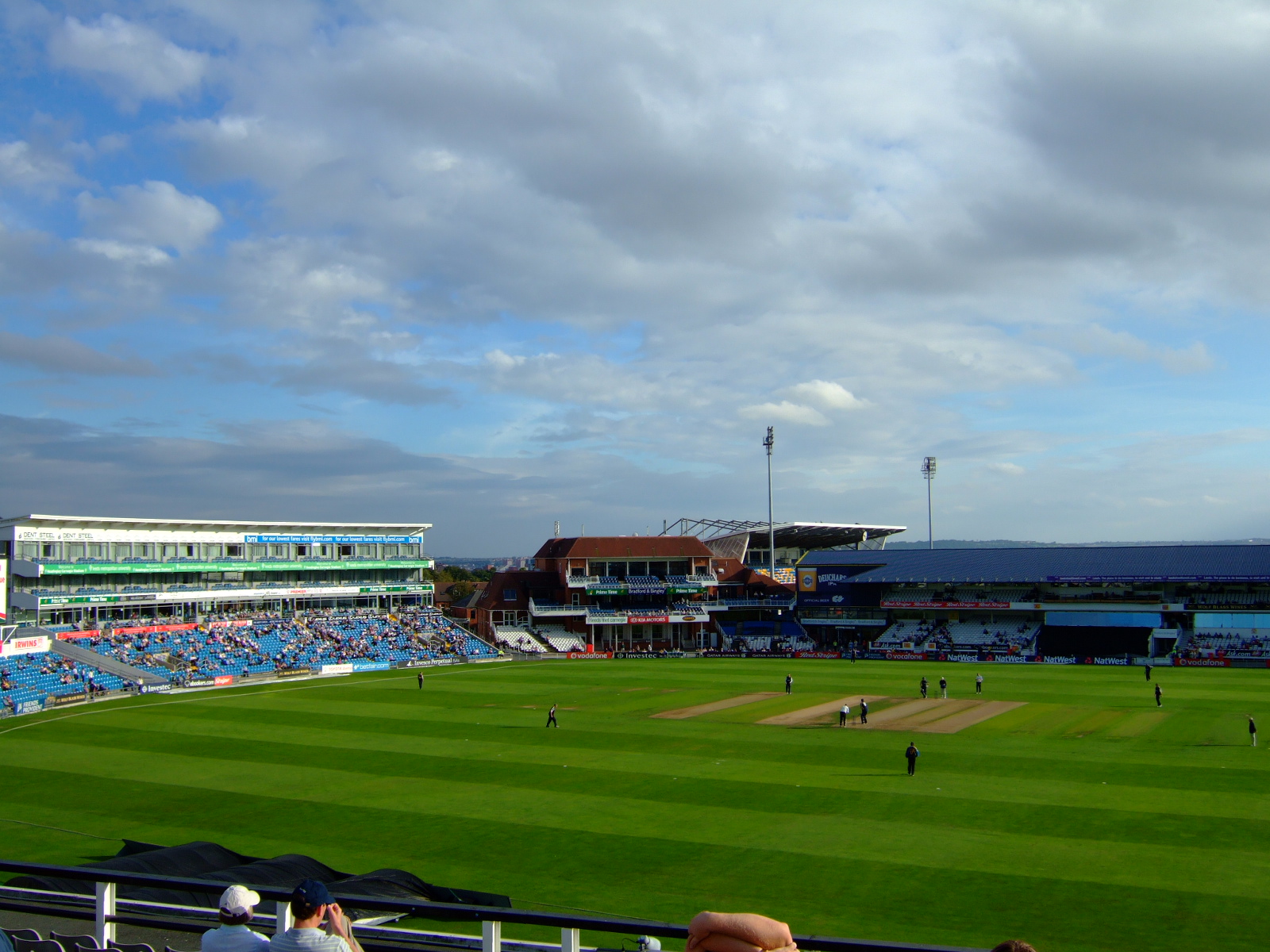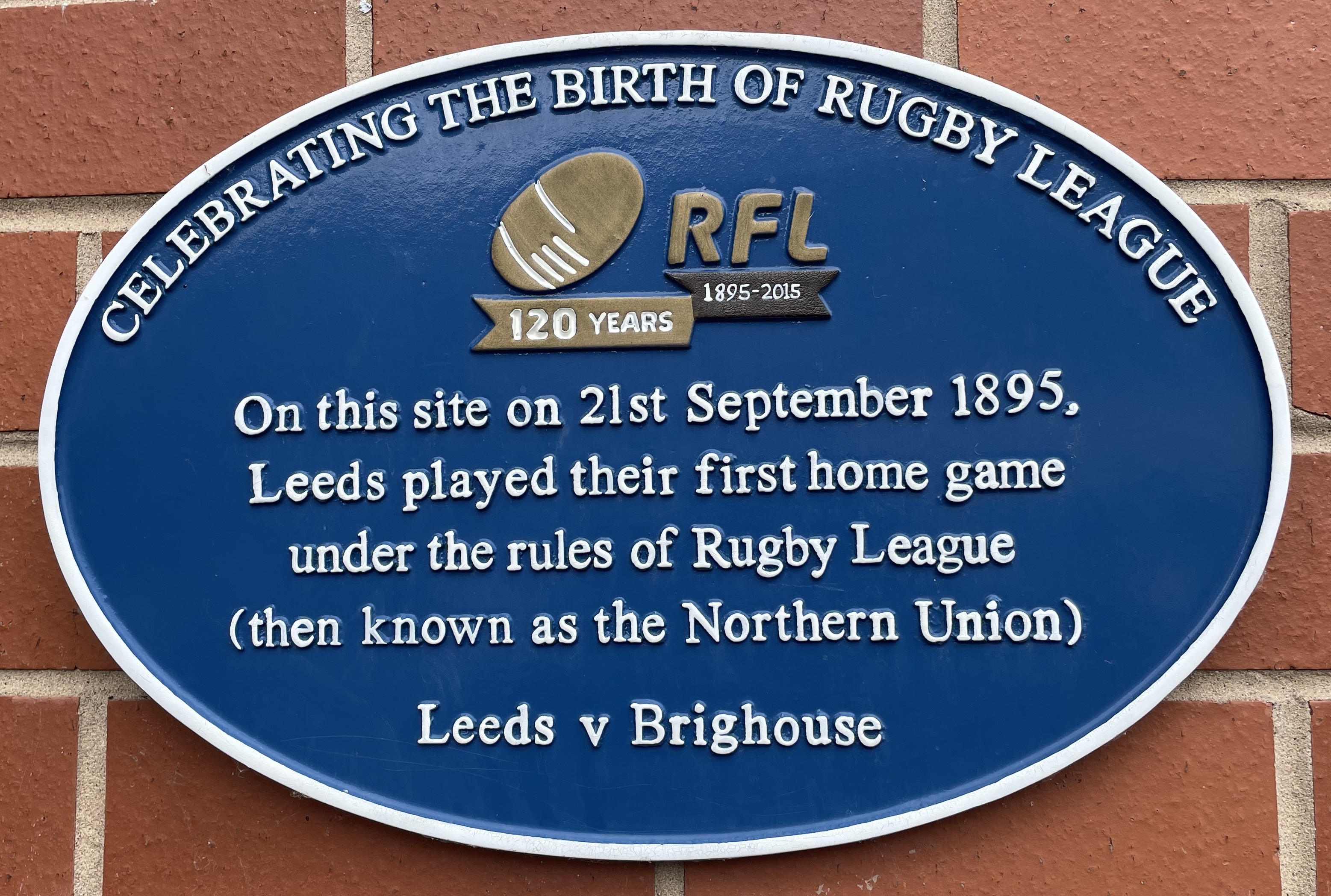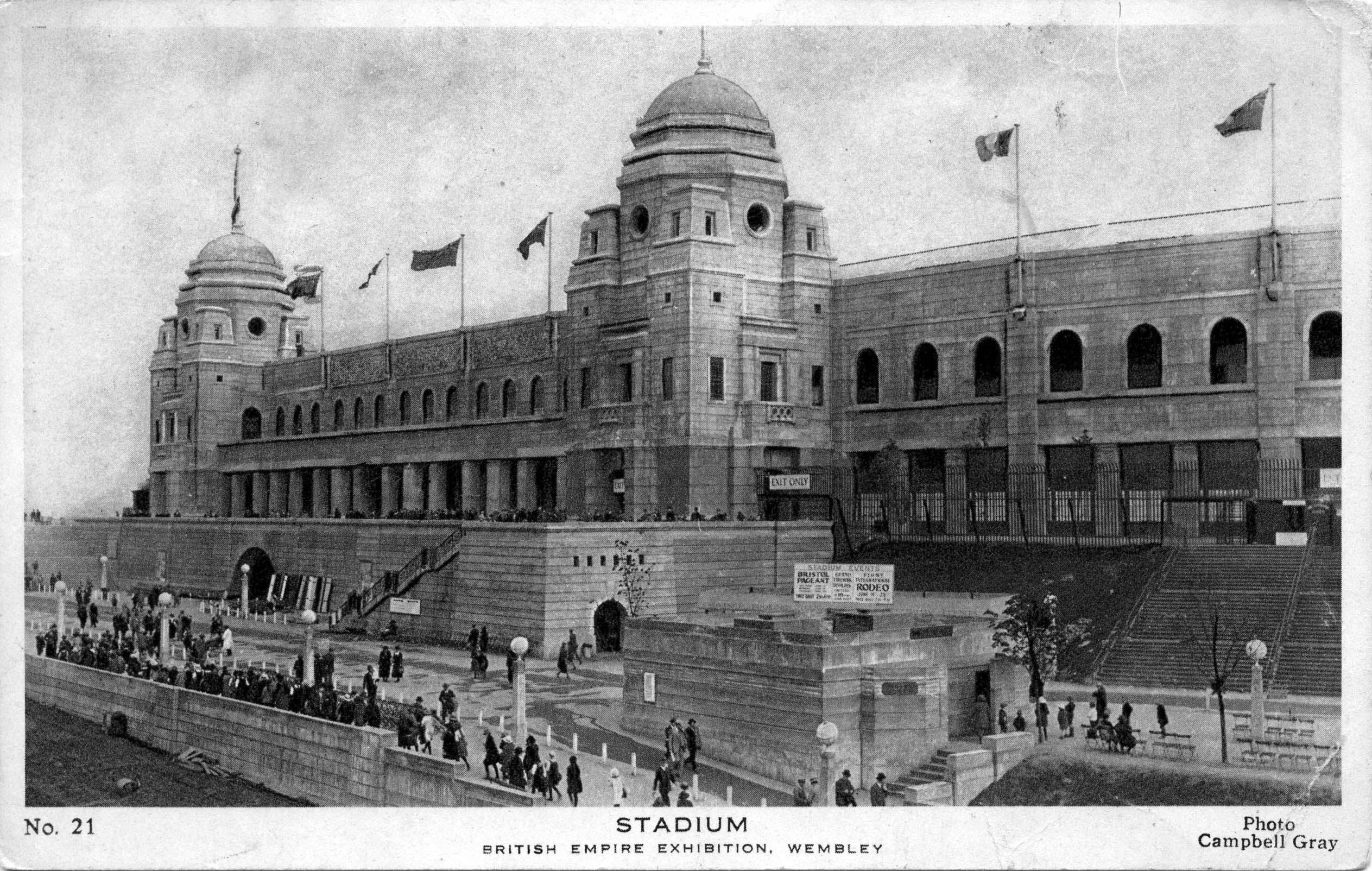|
Steve Quinn (rugby League)
Steven "Steve" Quinn (30 November 1951 – April 2016) was an English professional rugby league footballer who played in the 1970s and 1980s. He played at representative level for Yorkshire, and at club level for Tang Hall junior school, Heworth A.R.L.F.C., York and Featherstone Rovers ( Heritage № 536), as a goal-kicking , i.e. number 3 or 4. Playing career County honours Steve Quinn won caps for Yorkshire while at Featherstone Rovers; during the 1977–78 season against Cumbria and Lancashire, during the 1980–81 season against Cumbria, and Lancashire, and during the 1981–82 season against Cumbria. Championship appearances Steve Quinn played in Featherstone Rovers' Championship victory during the 1977–78 season. Second Division appearances Steve Quinn played, scored 163-goals (including drop goals) and 375-points and was Second Division Player of the Year, in Featherstone Rovers' Second Division victory during the 1979–80 season. Challenge Cup Final appearance ... [...More Info...] [...Related Items...] OR: [Wikipedia] [Google] [Baidu] |
York
York is a cathedral city with Roman origins, sited at the confluence of the rivers Ouse and Foss in North Yorkshire, England. It is the historic county town of Yorkshire. The city has many historic buildings and other structures, such as a minster, castle, and city walls. It is the largest settlement and the administrative centre of the wider City of York district. The city was founded under the name of Eboracum in 71 AD. It then became the capital of the Roman province of Britannia Inferior, and later of the kingdoms of Deira, Northumbria, and Scandinavian York. In the Middle Ages, it became the northern England ecclesiastical province's centre, and grew as a wool-trading centre. In the 19th century, it became a major railway network hub and confectionery manufacturing centre. During the Second World War, part of the Baedeker Blitz bombed the city; it was less affected by the war than other northern cities, with several historic buildings being gutted and restore ... [...More Info...] [...Related Items...] OR: [Wikipedia] [Google] [Baidu] |
Leeds
Leeds () is a city and the administrative centre of the City of Leeds district in West Yorkshire, England. It is built around the River Aire and is in the eastern foothills of the Pennines. It is also the third-largest settlement (by population) in England, after London and Birmingham. The city was a small manorial borough in the 13th century and a market town in the 16th century. It expanded by becoming a major production centre, including of carbonated water where it was invented in the 1760s, and trading centre (mainly with wool) for the 17th and 18th centuries. It was a major mill town during the Industrial Revolution. It was also known for its flax industry, iron foundries, engineering and printing, as well as shopping, with several surviving Victorian era arcades, such as Kirkgate Market. City status was awarded in 1893, a populous urban centre formed in the following century which absorbed surrounding villages and overtook the nearby York population. It is locate ... [...More Info...] [...Related Items...] OR: [Wikipedia] [Google] [Baidu] |
Headingley Rugby Stadium
Headingley Rugby Stadium shares the same site as Headingley Cricket Ground and is home to Leeds Rhinos. Headingley is the List of Rugby League stadiums in England, 5th largest rugby league stadium in England. History 1889-1980s: Construction and development Leeds St Johns, who were later to become Leeds Rugby League Football Club then Leeds Rhinos, moved to Headingley in 1889 and built Headingley stadium. Leeds were founder members of the Rugby Football League, Northern Union in 1895 and Headingley hosted rugby league's first ever Challenge Cup Final in 1897. In the 1930s, major developments took place on two sides of the rugby ground. The South Stand was completed in 1931, with some of the work being carried out by club players, while the old wooden North Stand was burned down during a match against Halifax on 25 March 1932. By the end of 1932, a new North Stand had been completed. The record attendance at Headingley was 40,175 for the rugby league match between Leeds an ... [...More Info...] [...Related Items...] OR: [Wikipedia] [Google] [Baidu] |
Headingley Stadium
Headingley Stadium is a stadium complex in Headingley, Leeds, West Yorkshire, England, comprising two separate grounds; Headingley Cricket Ground and Headingley Rugby Stadium, linked by a two-sided stand housing common facilities. The grounds are the respective homes of Yorkshire County Cricket Club (CCC) and Leeds Rhinos rugby league club. Initially it was owned by the Leeds Cricket, Football and Athletic Company (Leeds Rhinos); however since 2006, the cricket ground has been owned by Yorkshire CCC with the rugby ground retained by Leeds CF&A. The two organisations jointly manage the complex. From 2006 until 2017, the stadium was officially known as the Headingley Carnegie Stadium as a result of sponsorship from Leeds Metropolitan University, whose sports faculty is known as the Carnegie School of Sport Exercise and Physical Education. Between 1 November 2017 and 3 November 2021, the stadium was known as the Emerald Headingley Stadium due to the purchase of the naming rights by ... [...More Info...] [...Related Items...] OR: [Wikipedia] [Google] [Baidu] |
1976–77 Northern Rugby Football League Season
The 1976–77 Northern Rugby Football League season was the 82nd season of rugby league football. Sixteen English clubs competed for the Championship, with Featherstone Rovers claiming the title. Season summary The League Champions were Featherstone Rovers for the first and, to date, only time. During the season, the Salford versus Leeds match was abandoned after 38 minutes when Chris Sanderson of Leeds suffered a fatal injury. Leeds were ahead 5-2, but the game was declared null and void and not replayed. Rochdale Hornets, Leigh, Barrow and Oldham were demoted to the Second Division. The Challenge Cup Winners were Leeds who beat Widnes 16-7 in the final. Players No.6 Trophy Winners were Castleford who beat Blackpool Borough 25-15. Rugby League Premiership Trophy Winners were St. Helens who beat Warrington 32-20. BBC2 Floodlit Trophy Winners were Castleford who beat Leigh 12-4 in the final. 2nd Division Champions were Hull FC, and they, Dewsbury, Bramley and New Hun ... [...More Info...] [...Related Items...] OR: [Wikipedia] [Google] [Baidu] |
Rugby League County Cups
Historically, English rugby league clubs competed for the Lancashire Cup and the Yorkshire Cup, known collectively as the county cups. The leading rugby clubs in Yorkshire had played in a cup competition (affectionately known as ''t’owd tin pot'') for several years prior to the schism of 1895. However, the Lancashire authorities had refused to sanction a similar tournament, fearing it would lead to professionalism. After the split, the replacement for the Yorkshire Cup was not immediately introduced; however, new Yorkshire and Lancashire Cups were introduced in the 1905–06 season. The county cups were played on the same basis as the Challenge Cup, with an open draw and straight knock-out matches leading to a final. The county cups were abandoned in 1993 due to the more successful clubs complaining about overloaded fixtures, but the Yorkshire Cup was revived in 2019. Yorkshire Cup The Yorkshire Cup is a rugby league county cup competition for teams in Yorkshire. Startin ... [...More Info...] [...Related Items...] OR: [Wikipedia] [Google] [Baidu] |
RFL Yorkshire Cup
The RFL Yorkshire Cup is a rugby league county cup competition for teams in Yorkshire. Starting in 1905 the competition ran, with the exception of 1915 to 1918, until the 1992–93 season, when it folded due to fixture congestion. In 2019, the competition was relaunched as a pre-season tournament, but not all Yorkshire clubs were invited, hence it is not a legitimate running of the competition, and was not played for ahead of the 2020 season. The competition was open to all senior member clubs of the Rugby Football League in Yorkshire and was normally played in the opening months of the season. On two occasions, 1918–19 and 1940–41 the competition was held towards the end of the season due to the two world wars. During the Second World War the Lancashire Cup was not played for between 1941 and 1945 and several Lancashire clubs were admitted into the Yorkshire Cup competition instead. The cup finals in 1942, 1943 and 1944 were played over two legs with the winner being d ... [...More Info...] [...Related Items...] OR: [Wikipedia] [Google] [Baidu] |
1976–77 Yorkshire Cup
The 1976–77 Yorkshire Cup was the sixty-ninth occasion on which the Yorkshire Cup competition had been held. Leeds won the trophy by beating Featherstone Rovers by the score of 16–12. The match was played at Headingley, Leeds, now in West Yorkshire. The attendance was 7,645 and receipts were £5,198. This was Leeds' sixth victory (and the second of two consecutive victories) in what would be eight times in the space of thirteen seasons. It as also Featherstone Rovers's first of two consecutive Yorkshire Cup final appearances, both of which resulted in a defeat. Background This season there were no junior/amateur clubs taking part, no new entrants and no "leavers" and so the total of entries remained the same at sixteen. This in turn resulted in no byes in the first round. Competition and results Round 1 Involved 8 matches (with no byes) and 16 clubs Round 2 - Quarter-finals Involved 4 matches and 8 clubs Round 2 - replays Involved 1 match and 2 club ... [...More Info...] [...Related Items...] OR: [Wikipedia] [Google] [Baidu] |
Leeds Rhinos
The Leeds Rhinos are a professional rugby league club in Leeds, West Yorkshire, England. The club was formed in 1870 as Leeds St John's and play in the Super League, the top tier of English rugby league. They have played home matches at Headingley Stadium since 1890. In 1895, Leeds was one of twenty-two rugby clubs that broke away from the Rugby Football Union and formed what was originally the Northern Union, but is now the Rugby Football League. The club was known simply as Leeds until the end of the 1996 season, when they added Rhinos to their name. They are also historically known as the Loiners, referring to the demonym for a native of Leeds. Leeds have won 11 League Titles, 13 Challenge Cups and three World Club Challenge titles. Leeds play in blue and amber kits at home matches and historically have worn either white or yellow away kits. They share rivalries with St. Helens, Wigan Warriors, Bradford Bulls and Castleford Tigers as well as a local city rivalry with ... [...More Info...] [...Related Items...] OR: [Wikipedia] [Google] [Baidu] |
Wembley Stadium (1923)
The original Wembley Stadium (; originally known as the Empire Stadium) was a stadium in Wembley, London, best known for hosting important football matches. It stood on the same site now occupied by its successor. Wembley hosted the FA Cup final annually, the first in 1923, which was the stadium's inaugural event, the League Cup final annually, five European Cup finals, the 1966 World Cup Final, and the final of Euro 1996. Brazilian footballer Pelé once said of the stadium: "Wembley is the cathedral of football. It is the capital of football and it is the heart of football", in recognition of its status as the world's best-known football stadium. The stadium also hosted many other sports events, including the 1948 Summer Olympics, rugby league's Challenge Cup final, and the 1992 and 1995 Rugby League World Cup Finals. It was also the venue for numerous music events, including the 1985 Live Aid charity concert. In what was the first major WWF (now WWE) pay-per-view ... [...More Info...] [...Related Items...] OR: [Wikipedia] [Google] [Baidu] |
1982–83 Rugby Football League Season
The 1982–83 Rugby Football League season was the 88th ever season of professional rugby league football in Britain. Sixteen teams competed from August, 1982 until May, 1983 for the Slalom Lager Championship. Season summary *Slalom Lager League Champions: Hull *Challenge Cup Winners: Featherstone Rovers (14-12 v Hull) *Slalom Lager Premiership Trophy Winners: Widnes (22-10 v Hull) * John Player Special Trophy Winners: Wigan (15-4 v Leeds) *2nd Division Champions: Fulham Hull finished on top of the First Division table to claim their sixth and, to date, last championship, but Widnes won the Rugby League Premiership competition. Fulham, Wakefield Trinity, Salford and Whitehaven were promoted to the First Division. Warrington beat St. Helens 16–0 to win the Lancashire County Cup, and Hull F.C. beat Bradford Northern 18–7 to win the Yorkshire County Cup. League Tables Championship Final Standings Second Division Challenge Cup The 1982-83 State Express Challen ... [...More Info...] [...Related Items...] OR: [Wikipedia] [Google] [Baidu] |

.jpg)



